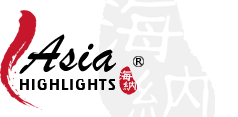For a country that reveres respect and has an incredibly high density of population, respecting a complex etiquette is crucial. Etiquette makes social intercourse easier, allowing people to show respect and consideration for others.
Japanese etiquette can be quite complex, as there are many rules according to the social context and the social status of those involved. However, foreigners don't have to worry too much, as they will be easily forgiven for their mistakes. Just try to be sensitive, imitate those around you, and embrace this new experience.
In order to be a bit more prepared, read our brief guide about etiquette in Japan!
Quick facts
- Japanese daily life etiquette revolves around respect and self-discipline.
- Every aspect of etiquette shows respect: from greetings to bowing in an appropriate way…
- …to lining up, avoiding jaywalking, and not smoking outdoors.
- Being a guest is considered to be an honor, and respecting your host is fundamental.
- When visiting Buddhist temples and Shinto shrines, follow a basic etiquette to respect the sacred place.
Discover real reviews of Highlights Travel Family's best-rated service across trusted platforms.

 
|
Our second trip is now booked with Alisa Liu of Asia Highlights
She represents the very best travel agent to coordinate and customize your journey to Asia. This second trip, using Alisa Liu, will take us through Japan. More
, Mar 2024
|
Customized Trip Planning
My experience with Alisa at Asia Highlights has been excellent. I wanted to customize my trip to South Korea and Japan. I made several changes and asked many questions which she answered promptly. My trip included only hotels and transportation because I wanted to explore on my own. This gave me the option to book my own tours if I want. I selected Asia Highlights because of the great reviews and booked because Alisa was helpful in planning my trip. More
JBC, Feb 2024
|
Japan Tour
Alisa did a fantastic job, answering all my questions and catering to what I want for our upcoming Japan tour. The itinerary was so detailed! We are so excited for our trip! More
Theresa Beltran, Feb 2024
|
Daily life etiquette
In everyday life, following etiquette is really important to Japanese people. All the occasions, even the most informal and simple ones, are dictated by some rules, in order to show and receive respect. Respect, in fact, is at the core of Japanese etiquette.
Greetings
As in most cultures, greetings are particularly important for Japanese people. From early childhood, children are taught to deliver greetings with vigor, since a lazy greeting is considered rude and demonstrates a weak personality.
There are different greetings, according to different social status. A common, informal greeting is konnichiwa ("hello"). Ohayōgozaimasu ("good morning") is usually used until 11am, but it can be used all day if you are meeting someone for the first time. Konbanwa means "good evening".
Bowing
Every greeting is delivered with a bow. To bow, keep your back and neck straight and bend from the waist. Males keep their hands on the side, females will clasp them at the lap. Eyes are always looking down, as gazing directly at someone is considered rude. Long and deep bows express strong emotion and great respect.
Like greetings, bows can be informal, formal, or very formal, by the degree of the bowing. For example, informal bowings are made at a fifteen-degree angle, while more formal bows are made at about thirty degrees. The deepest bows are the very formal ones.
Bowing etiquette is extremely complex. The general rule is that the inferior person bows longer and deeper than the superior, and it is important to learn how long and deep a bow should be according to the situation.
Shaking hands, however, is common between Japanese and non-Japanese people.
Body language
Japan, as many other Asian countries, uses high-context communication, and so body language is extremely important. Facial expression, body language, eye movement are crucial to fully understanding the other person's meaning.
When in Japan, remember to avoid eye contact as much as possible, as you might offend or even frighten someone. A good posture will reveal your interlocutor that you are respectful. People do not usually lean against a wall or sit with widespread arms or legs. Pointing at someone is also considered rude.
Silence is highly regarded; if you don't know what to say, it is better to keep quiet.
Lining up and jaywalking
Children are taught self-discipline, respect, and cooperation early on, and this is widely reflected in the way Japanese people line up. Japanese people live in cities with an incredibly high density of population, and they get quickly used to waiting in order to get something. Lining up properly, waiting for one's turn, is a way to show respect for the rest of the group.
The same is valid for jaywalking. Drivers strictly adhere to the rules, and jaywalking is considered rude and disruptive, and, of course, dangerous. Pedestrians have designated lanes that they must use. When you are not sure if you are crossing a pedestrian zone, just ask someone like a police officer.
Smoking
Smoking outdoors is strictly prohibited. There are designated areas everywhere where you can smoke, otherwise you will be fined. Many restaurants and bars have smoking areas. Remember that even lighting a cigarette is illegal, so avoid it altogether.
Taxes and tipping
When paying for goods and services, taxes are already included in the final price, so you don't have to worry about it.
Generally speaking, there is no need for tipping. Tips simply won't be accepted, as service is already included. People can also feel offended when given a tip, so a good advice is to avoid it.
Visiting families
Being a guest and a host is considered to be an honor. Japanese hosts will be humble, considering their house not good enough to entertain someone, and will do everything to make their host feel at home.
Shoes
When entering someone's house, remember to take off your shoes. It is considered extremely rude to bring dirt inside someone's house.
The floor level is often higher than the ground, in order to keep it clean, and it is important to keep it so. Shoes are removed and slippers (uwabaki) are worn. If you have to take a short walk to enter the house, you will be provided with geta, the wooden sandals.
Gifts
Seibo (winter) and chugen (summer) are the two gift seasons in Japan. Gifts are usually for someone who has helped you, and subordinates will give a gift to their superiors.
If you want to give a gift to someone, for example to your host, remember that some gifts are impolite. For example, items with the numbers 4 or 9 on them should be avoided, as they are considered unlucky. For weddings, scissors and knives should be avoided (they could "cut" the relationship); for house-warming gifts, avoid anything that has an association with fire.
Temple and shrine etiquette
When visiting a Buddhist temple or a Shinto shrine, behave how you would behave in any other sacred place. Respect the place and those around you, be quiet, and follow some simple rules, like wearing the appropriate clothes, taking off your shoes, and not taking pictures.
Before entering a shrine, rinse your hands and mouth with the water in the fountain just outside the entrance, so as to purify yourself. Put a coin in the offering box you will find in the main hall, bow twice, clap your hands twice and recite a short prayer. If there is a gong, use it before praying, so as to get the attention of the deity.
Inside Buddhist temples, you should pray and burn incense. After the candle has burnt for a few seconds, extinguish it with a gentle movement of the hand.
Dining and bathing etiquette
Meals in Japan begin with someone saying itadakimasu ("I humbly receive") to express gratitude for the food provided. When eating, try always to finish your food, as it shows that you are satisfied with what has been served.
According to what you are eating, drinking from the bowl and slurping are acceptable. Soy sauce should be used with discretion, especially when eating sushi. Do not rub chopsticks against each other, and if they are single-use return them inside their paper wrapper. Generally speaking, Japanese do not eat or drink when walking in public. If you don't know how to behave, just follow what everyone else does.
Bath tubs are more for relaxing than cleansing. You are expected to clean yourself before entering the tub (ofuro) in a special area, taking care that no soap is transferred into the ofuro. Water usually covers your shoulders, and you have to sit drawing up your knees. Ofuro serve a lot of people, so be respectful and don't indulge for too long.
If you are the guest in someone's house, you will be given priority when taking a bath. Family members can bathe together, otherwise they go in in order of seniority. Sentō (public bathhouses) are increasingly common.They are segregated by gender and usually ban customers with tattoos (traditionally linked to yakuza, the Japanese mafia).
Visit Japan with Asia Highlights
Anywhere, etiquette is complex and fascinating, as it reveals the inner spirit of the culture you are exploring. So, don't wait any longer and get a first-hand experience of Japanese culture. Our professional staff will help you crafting your next trip to Japan, taking care of everything and ensuring you and your family a hassle-free vacation.
Check out the following links and learn more about our tours now
Why Asia Highlights (10,000+ reviews & 98.8% 5-star rating)
- Save Your Time:
- Less research, more enjoyment!
- Real-time 1V1 expert planning
- Maximize Your Flexibility:
- Personal local guide and ride
- Explore at your own pace
- Celebrate Your Journeys:
- Specially-crafted family adventures
- Celebrate milestones with style!
- Japan Weather in January: Travel Tips for First-Timers
- Japan Weather in February 2024: Travel Tips for First-Timers
- Japan Weather in March 2024: Travel Tips for First-Timers
- Japan Weather in April 2024, Travel Tips (for First-Timers)
- Japan Weather in May 2024: Travel Tips for a First Visit
- Japan Weather in June 2024: Coolest Summer Month, Travel Tips for First Visit
- Japan Weather in July 2024: Full of Festivals, Travel Tips for First Visit
- Japan Weather in August 2024: Travel Tips for First Visit
- Japan Weather in September, Travel Tips (for First-Timers)
- Japan Weather in October 2024: Travel Tips for First-Timers
- Japan Weather in November 2024: Best Autumn Month, Travel Tips
- Japan Weather in December 2024: Travel Tips for First-Timers
Get Inspired with Some Popular Itineraries
At Asia Highlights, we create your kind of journey — your dates, your destinations, at your pace. You can have any trip tailor made for your travel.

